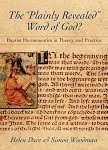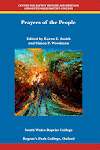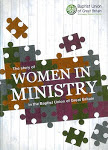A sermon for Provoking Faith in a Time of Isolation
the online gathering of Bloomsbury Central Baptist Church
2nd May 2021
Acts 15.1-18
It seems that ‘Identity Politics’ is nothing new, even if the phrase itself wasn’t coined until the late 1970s.
Whilst it was a community of black feminists in Boston, just over forty years ago, who first used these specific words to articulate their struggle for power on the basis of their identity; the intertwining of politics with identity has been taking place for millennia, with countless people being asked to sacrifice aspects of who they are, in exchange for inclusion or freedom from oppression.
And our reading this morning from the book of Acts is just such an example from antiquity, of a highly charged political debate, with identity politics right at the heart of it.
This story from Acts 15 is regarded by many scholars as the central narrative of the whole book. It’s often referred to as ‘The Council at Jerusalem’, and at stake is the very basis and nature of the Christian church.
But you have to rewind to the beginning of Acts, to get a sense of the trajectory that Luke is setting for his readers in this account of the early years of Christianity.
In Acts 1.8 the risen, but not yet ascended Jesus, says to the disciples in Jerusalem:
‘You will receive power when the Holy Spirit has come upon you; and you will be my witnesses in Jerusalem, in all Judea and Samaria, and to the ends of the earth.’
And there are two key aspects of this which we need to pay attention to, if we’re to understand what’s going on fifteen chapters later at the Council of Jerusalem.
Firstly, there is the promise of the Holy Spirit. We’ve not yet got to Pentecost in our own journey through the liturgical year of 2021: we’ll come to it later this month, on the 23rd May as we re-start weekly worship in the church building.
But the thing for us to note today is that here, right at the beginning of Acts, Jesus tells the disciples that the gift of the Holy Spirit will be decisive for their future mission.
The church going forward, will be the church shaped by the Spirit of Christ. As he departs from them in bodily form, his Spirit will remain to guide them.
And the second thing for us to register here is the geographical trajectory of that Spirit-led church - from Jerusalem, through all Judea and Samaria, and to the ends of the earth.
The gift of the Spirit is given to the church to drive the church beyond Israel, into the gentile nations of the world.
And this is then precisely what we see happening through the first part of the book of Acts.
We’re not looking at all these stories this year, but if we had read through the book in full up to today’s reading, we would have heard these stories:
- Philip proclaiming Christ in Samaria (8.4-8),
- Philip and Ethiopian Eunuch (8.26-40) which we looked at last week,
- The conversion of Saul and his commissioning to preach to the gentiles,
- Simon Peter’s vision on the rooftop of Cornelius the Centurion’s house and the outpouring of the Holy Spirit onto his gentile household (Acts 10),
- The planting of the church among the gentiles in Antioch, and the gift of the Holy Spirit to them (11.19-30),
- Paul and Barnabas being led by the Holy Spirit to plant churches in the gentile territories of Syria, Cyprus, and Asia Minor.
And woven through all of this early missionary activity were these two strands: the gift of the Holy Spirit, and the expansion of the church beyond Israel.
And then, right in the middle of it all, there emerged a huge, seismic controversy around identity, that threatened to tear the church apart, or stifle it altogether.
The key identities here were those of Jewish versus Gentile. As with any attempt to understand Jewish identity as it is depicted in the Christian scriptures, we need to tread carefully, and to be aware that these stories have contributed to a long and horrific tradition of anti-Semitism.
We cannot assume that the depiction of first century Judaism that we meet here is either complete or entirely accurate. However, neither can we ignore the identity issue at play, or we will never understand the story properly. So with that caveat articulated, let’s unpick this a bit.
The expression of Judaism we meet in the first century, often called Second Temple Judaism, had taken shape during of the Babylonian exile some six centuries earlier, and it was a form of intertwined religious and ethnic identity focussed around some key symbols and signs, that marked the Jews as distinct from other nations.
So, Torah-keeping or the observance of the Law was one key marker, with its distinctive dietary regulations, along with other behavioural expectations.
Another was the practice of male circumcision, as a visible and indelible sign of belonging to the covenant people of God.
You knew you were Jewish, not because you lived in the land of Israel, or because you went to the Temple for worship, but primarily because you participated in certain actions. Being a first century Jew was about who you were, not where you lived.
Of course, there were Jews who lived in Israel, but not everyone who lived in the land was Jewish; and similarly there were many Jews who lived in Gentile lands, the diaspora as they were known, who were every bit as Jewish as anyone who lived in Jerusalem.
So the identity markers of Jewish ethnicity and religion, including circumcision and dietary laws, ran very deep. If you questioned these, you questioned the very basis of both a person’s relationship with God, and their relationship with their community.
Factor into this that for a very long time, being Jewish had also meant being an oppressed people, and these markers of identity became even more deep-rooted.
Just as significant minority identities in contemporary society, such as black identity, or LGBTQ+ identity, or feminist identity, have all been forged in contexts of oppression or exclusion; so the Second Temple Jewish identity was forged in a context of persecution and subjugation.
This meant that the public inhabitation of that identity - through circumcising your male children, and visibly obeying the Torah laws - was a powerful marker of resistance against domination.
To ask a first century Jew to set aside circumcision or Torah, would have been analogous to asking a contemporary member of the LGBTQ+ community to set aside their sexuality or gender, or asking a black person to deny their culture of ancestry.
Therefore, to suggest, as Peter and Paul and others started to do, that gentiles might become part of God’s covenant people, but without taking on themselves the markers of Jewish identity, was heard and felt as a fundamental betrayal.
So Peter’s baptism of the Roman Centurion Cornelius’s family, or Paul’s invitation to gentiles to join the church in Antioch, were deeply problematic actions.
This is the setup for the crisis that leads to the Council at Jerusalem, and we cannot underestimate how difficult it is for the Jewish Christians to hear what Peter and Paul are saying.
They are claiming that God is pouring out the Holy Spirit on people who are outside of the existing community of God’s people, and they are arguing that if God is blessing the gentiles with the Spirit of Christ, then no further obligation needs to follow, in terms of either circumcision or any other demands of the Torah.
Paul has concluded on the basis of his experience in Antioch and elsewhere, that the hallmark of identity for belonging to the people of God is not whether a person embodies the markers of Israel, but whether they share the faith of Israel as it has been embodied in Jesus Christ.
In Ephesians, Paul speaks of the giving of the Holy Spirit seal of a person’s salvation (1.13; 4.30); and in Romans he reinterprets circumcision for the follower of Christ as an inward spiritual act, rather than an outward physical ritual.
In other words, he argues that the primary identity of the Christian is found in Christ, and in the gift of the Spirit of Christ, and not in the keeping of Torah or in circumcision.
And so Paul finds himself back in Jerusalem, with Simon and James and the other leaders of the early church, to try and discern a way forwards.
The Baptist in me would like to claim this as the first proper argument at a Church Meeting, but that may be stretching it a bit; it’s more like an early church council.
Anyway, after much discussion, the Jerusalem Council reaches a compromise decision. They will not impose the full demands of Torah or circumcision on gentile converts, but neither will they say that behaviour doesn’t matter.
Rather, they identify three areas where gentiles will be asked to moderate their behaviour, and they name issues which are so culturally rooted in the Jewish identity of that time that to relax them would have made Jewish Christians unable to share physical space with Gentile Christians.
So they specify abstaining from food that has been offered to idols, from eating or drinking blood, and from fornication. And that’s it.
It’s a masterclass in cross cultural mission, and something that Western Colonial missionaries of the last five hundred years have had to learn again and again.
Pretty much wherever you think you draw your line on identity and behaviour, you can find evidence that God is beyond that line; at work, pouring out the Holy Spirit on people who are still regarded as unacceptable to the current embodiment of God’s people.
Compromises will sometimes have to be reached, in the name of sustaining relationships, but such pragmatic responses are just that - they are responses to human frailty, rather than divine mandates for human behaviour.
The theological principle here is often called the missio Dei, the mission of God.
The great missiologist David Bosch describes what this phrase missio Dei means. He says that “mission is not primarily an activity of the church, but an attribute of God. God is a missionary God.”
And Jurgen Moltmann says that, “It is not the church that has a mission of salvation to fulfil in the world; it is the mission of the Son and the Spirit through the Father that includes the church.”
In other words - the task of drawing the world to God, is God’s task. Not ours.
The people who are already part of God’s family have their part to play, sure, but our task is to prayerfully discern and observe what God is doing, to pay attention to where God is pouring out the Holy Spirit beyond the boundaries of the church as it currently defines itself, and to then join in with whatever new thing it is that God is doing.
Mission is therefore not something we do at all, it is who God is.
When we make mission about saving individuals, when we focus on personal salvation, we reduce God’s activity from the universal to the parochial. We make it all about us, and of course it isn’t about us at all, it’s about God.
And God’s plan is to love, save, and bless the whole world, indeed the whole of creation.
This is where I need to out myself, once again, as a universalist.
I think that any understanding of God’s activity in the world, that restricts the scope of God’s saving action to a subset of creation, is a diminishment and restriction of who God is revealed to be in Christ Jesus.
And it is a betrayal of the insights of Paul and Peter, who grasped that God is always to be found at work beyond whatever barriers we humans might seek to construct, around ourselves and our communities of faith.
It starts with God, and God’s invitation to you and to me. We are already now the people of faith. But it goes way beyond us.
As the Council of Jerusalem had to discern, God’s plan for the salvation of the world runs from Jerusalem, through all Judea and Samaria, and - yes - to the ends of the earth.
So when we find ourselves holding on to our traditions for dear life; when we feel our identity as God’s people is under threat; when we worry that we are losing control, and that our deeply held beliefs are being erased; we do well to remember that our task is simply to follow God.
The promise that God made to Abraham, back at the very beginning of the Jewish story, was that through Abraham’s descendants all the nations of the world would be blessed (Gen. 18.18).
This does not involve the erasing of any person or community’s identity, in fact quite the opposite.
As we discover God at work in those who are ‘not like us’, we also gain a new understanding of how God is at work in ‘us’ as well.
The Council at Jerusalem is not the abolition of Jewish identity, it is a glorious recognition that God is bigger than us, bigger than our tribe, bigger than our community of faith, and that God is at work through the Spirit of Christ, drawing all people into his eternal, loving embrace.
All we are called to do, as God’s people, chosen and loved
for who we are, is join in with what God is doing.
















